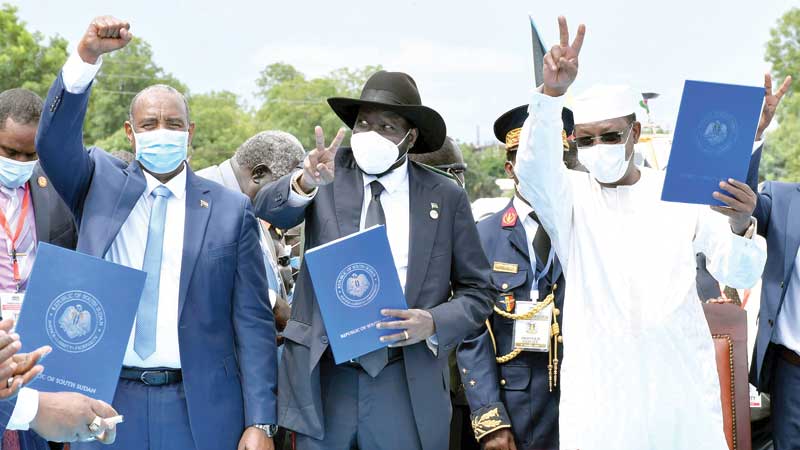

JUBA: Sudan’s government and rebel groups on Saturday inked a landmark peace deal aimed at ending decades of war in which hundreds of thousands died.
Ululations and cheers rang out as one by one, representatives from the transitional government and rebel groups signed the deal, a year after the peace talks began, at a ceremony in the South Sudanese capital Juba.
“Today we have reached a peace agreement. We are happy. We have finished the mission’’, Tut Gatluak, head of the South Sudanese mediating team said shortly before the signing took place. Ending Sudan’s internal conflicts has been a top priority of the transitional government, in power since last year’s ouster of longtime dictator Omar al Bashir in a popular pro-democracy uprising.
Sudanese paramilitary commander Mohamed Hamdan Daglo — best known by his nickname “Hemeti” — signed the deal on behalf of Khartoum.
A representative of the Sudan Revolutionary Front (SRF) and others from the groups making up the coalition, also signed.
The SRF comprises rebel groups from the war-ravaged western Darfur region, as well as the southern states of Blue Nile and South Kordofan.
Guarantors of the deal from Chad, Qatar, Egypt, the African Union, European Union and United Nations also put their names to the agreement.
The deal covers a number of tricky issues, from land ownership, reparations and compensation to wealth and power sharing and the return of refugees and internally displaced people.
However two other powerful rebel groups did not sign, reflecting the challenges still facing the peace process.
Sudan has been torn by multiple conflicts between the Arab-dominated government that was led by Bashir for three decades and rebels drawn from non-Arab ethnic groups in its far-flung regions. In Sudan’s vast rural areas, settled ethnic minority farmers have frequently competed for scarce resources with Arab herders, who have often been backed by Khartoum.
Multiple civil wars have raged since independence in 1956, including the 1983-2005 war that led to the secession of the south. — AFP
Oman Observer is now on the WhatsApp channel. Click here



